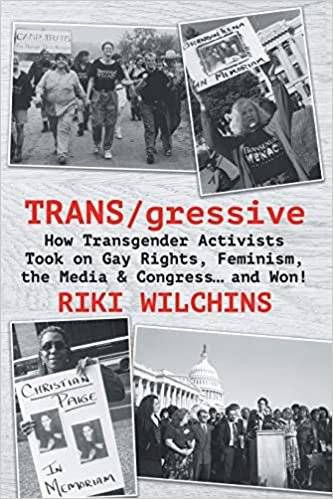Riki’s Books
Gender Norms and Intersectionality: Connecting Race, Class and Gender
There have been few, if any, attempts to translate the immense library of academic studies on gender norms for a lay audience, or to illustrate practical ways in which their insights could (and should) be applied. Similarly, there have been few attempts to build the case for gender in diverse fields like health, education, and economic security within a single book, one which also uses an intersectional lens to address issues of race and class. This book not only looks at the impact of rigid gender norms on young people who internalize them, but also shows how the health, educational, and criminal justice systems with which young people interact are also highly gendered systems that relentlessly police and sustain very narrow ideas of masculinity and femininity, particularly among youth. Current treatments of a “gender lens” or “gender analysis” both at home and abroad usually conflate gender with women and/or trans. Gender Norms and Intersectionality shows conclusively how this is both inadequate and wrong-headed. It documents why gender norms must be moved to the center of the discourses aimed at improving life outcomes for at-risk communities. And it does so while acknowledging the insights of queer theorists about bodies, power, and difference. This book provides a starting point for a long overdue movement to elevate “applied gender studies,” providing both a reference and guide for researchers, students, policymakers, funders, non-profit leaders, and grassroots advocates. It aims to transform readers’ view of a broad array of familiar social problems, such as basic wellness and reproductive health; education; economic security; and partner, male-on-male, and school violence—showing how gender norms are an integral if overlooked key to understanding each.
Burn the Binary!: Selected Writings on the Politics of Trans, Genderqueer and Nonbinary
An icon of transgender activism for three decades, Riki Wilchins is the author of four influential books on genderqueer, trans politics, and queer theory. Riki Wilchins has been a pioneering and influential thinker and writer for a quarter of a century. Now this single volume offers a selection of Riki’s most penetrating and insightful pieces, as well as the best of two decades of Riki’s online columns for The Advocate never before collected. Think of this as Riki Wilchin’s greatest hits!
TRANS/gressive: How Transgender Activists Took on Gay Rights, Feminism, the Media & Congress… and Won!
In the early 1990s, no one talked about transgender people, and no one knew one. We were not on TV or in movies. What formed the visible part of the transcommunity – overwhelmingly white, urban, and middle class – was also overwhelmingly focused on conferences, surgery or hormones and cisgender acceptance. This was still a determinedly non-political population, often in defensive crouch because it was also constantly under attack by the media, police, local legislatures, feminists and even LGB-but-never-T advocates. We were a group that still thought of ourselves as a collection of separate individuals, not a movement. What made political consciousness so difficult was that there was no “transgender section” of town, where we saw each other regularly. And mainstream society mostly ignored us. And when it didn’t, it usually made clear it despised us. We were freaks. We were gendertrash. We lived in a transient and indoor community that knew itself only a few days at a time during conferences at hotels out on the interstate. But all that was about to change. Even when politics are avoided, bringing despised and marginalized people together is itself a political act. Without realizing or intending it, the community was reaching critical mass. Even in those pre-Internet, pre-cellphone days, enough transpeople were running into one another often enough to begin realizing we could be a force, that we didn’t really need cisgender acceptance. What we needed was our civil rights. This is the inside story of how in just a few years, a handful of trans activists would come together in the face of enormous difficulties and opposition to launch from the very margins of society what would grow into the modern political movement for gender rights.
Queer Theory, Gender Theory: An Instant Primer
Originally published in 2004, Queer Theory, Gender Theory: An Instant Primer is a classic of LGBTQ+ literature and is taught in most gender studies programs throughout the United States. It was the first book to offer a one-stop, no-nonsense introduction to the core of postmodern theory, particularly its impact on queer and gender studies and is still powerfully relevant today.
Nationally-known gender activist Riki Wilchins combines straightforward prose with concrete examples from LGBTQ+ and feminist politics, as well as her own life, to guide the reader through the foundational ideas of Derrida, Foucault, and Judith Butler that have forever altered our understanding of bodies, sex and desire. This is that rare postmodern theory book that combines accessibility, passion, personal experience and applied politics, noting at every turn why these ideas matter and how they can affect your daily life.
GenderQueer: Voices from Beyond the Sexual Binary
When GenderQueer was first published in 2002, it was groundbreaking, even inventing a new word for those whose voices had been hidden behind the walls of the gender binary. Now—finally!—it's republished, and those voices are still fresh and compelling in a volume that can take its place as one of the field's early and most original "classics." Perhaps more than any other issue, gender identity has galvanized the queer community in recent years. The questions go beyond the nature of male/female to a yet-to-be-traversed region that lies somewhere between and beyond biologically determined gender. In this groundbreaking anthology, first published nearly two decades ago, three experts in gender studies and politics navigate around rigid, societally imposed concepts of two genders to discover and illuminate the limitless possibilities of identity. Thirty first-person accounts of gender construction, exploration, and questioning provide the groundwork for cultural discussion, political action, and even greater possibilities of autonomous gender choices.
Read My Lips: Sexual Subversion and the End of Gender
Read My Lips burst on the scene in 1997 without precedent. It was unique, radical, endearing, outrageous, and very funny. It stood the orthodox academic and medical theories about transexuals on their heads. At last, a trans-intellectual built a theoretical foundation of transgenderism in accessible language, and, most importantly, laid out the tools to fight back against gender oppression. Now re-published as a canon of trans-writing—a book that has influenced queer academics and genderqueer folk everywhere for more than fifteen years—its message remains radical.






